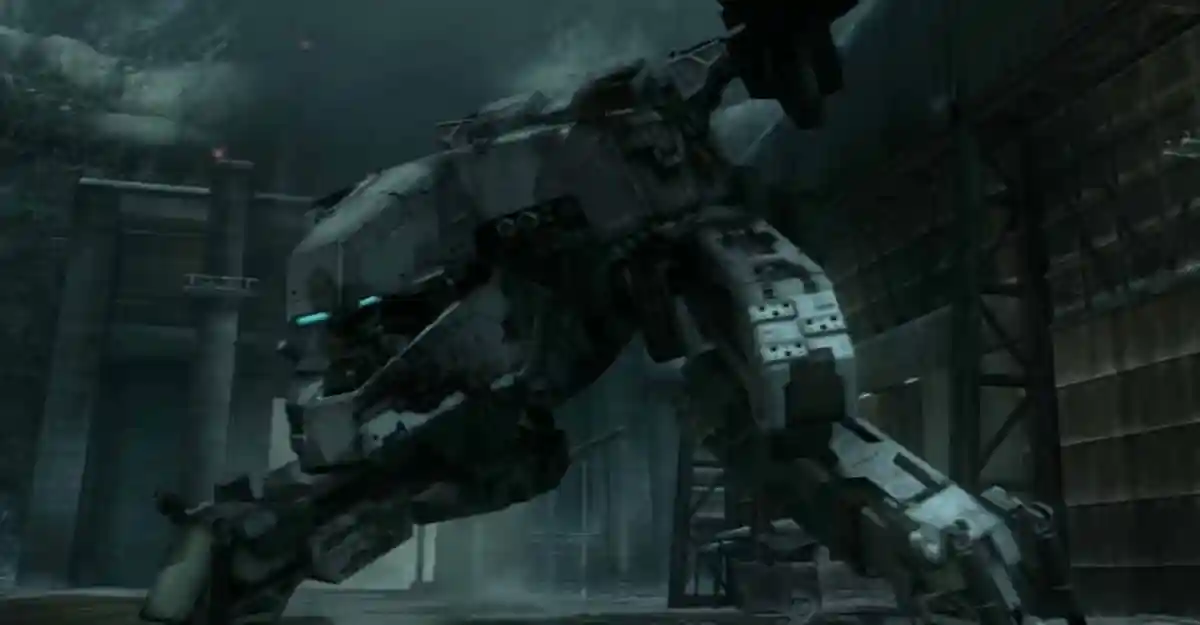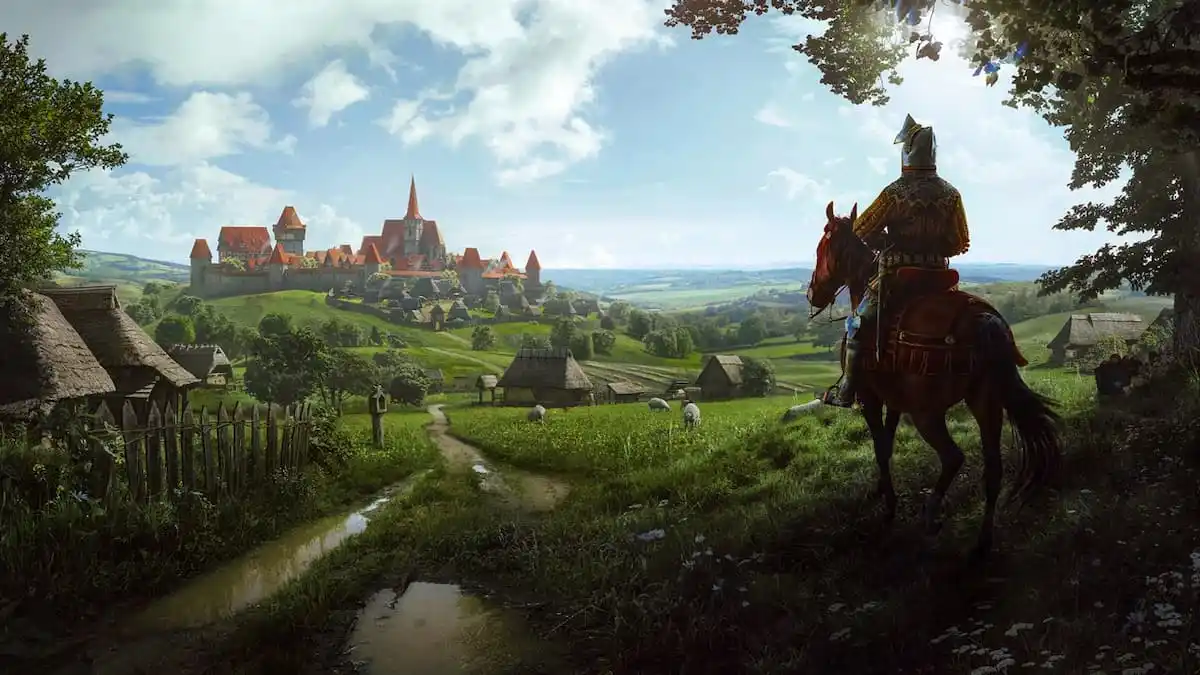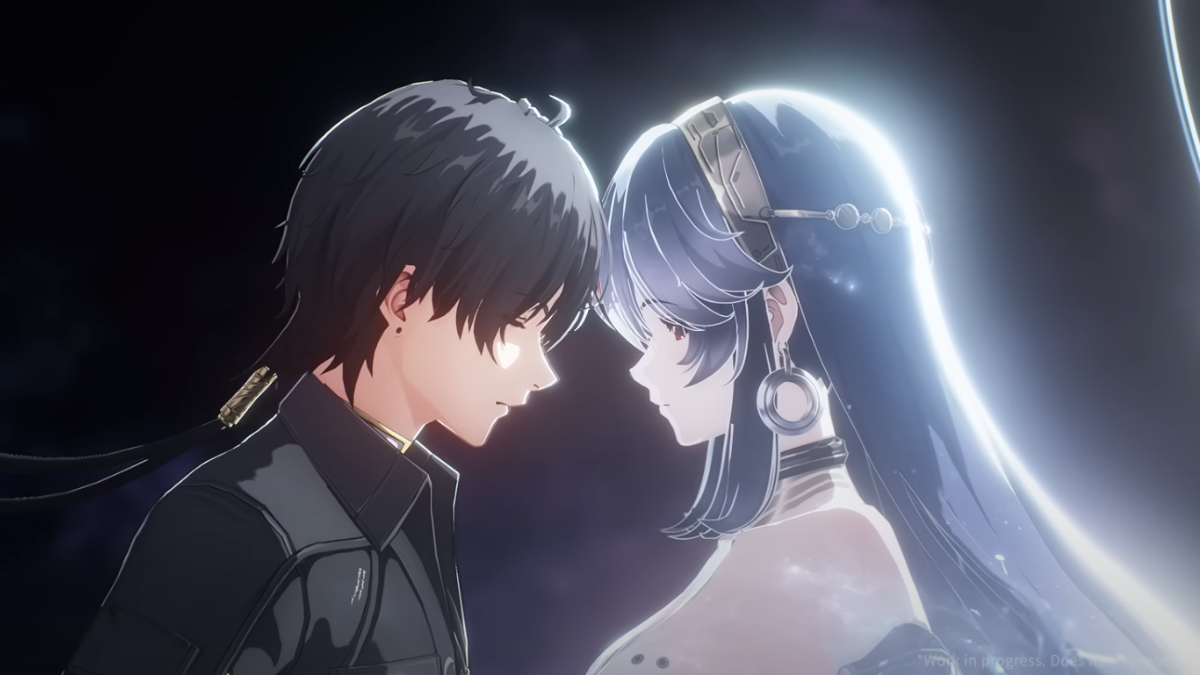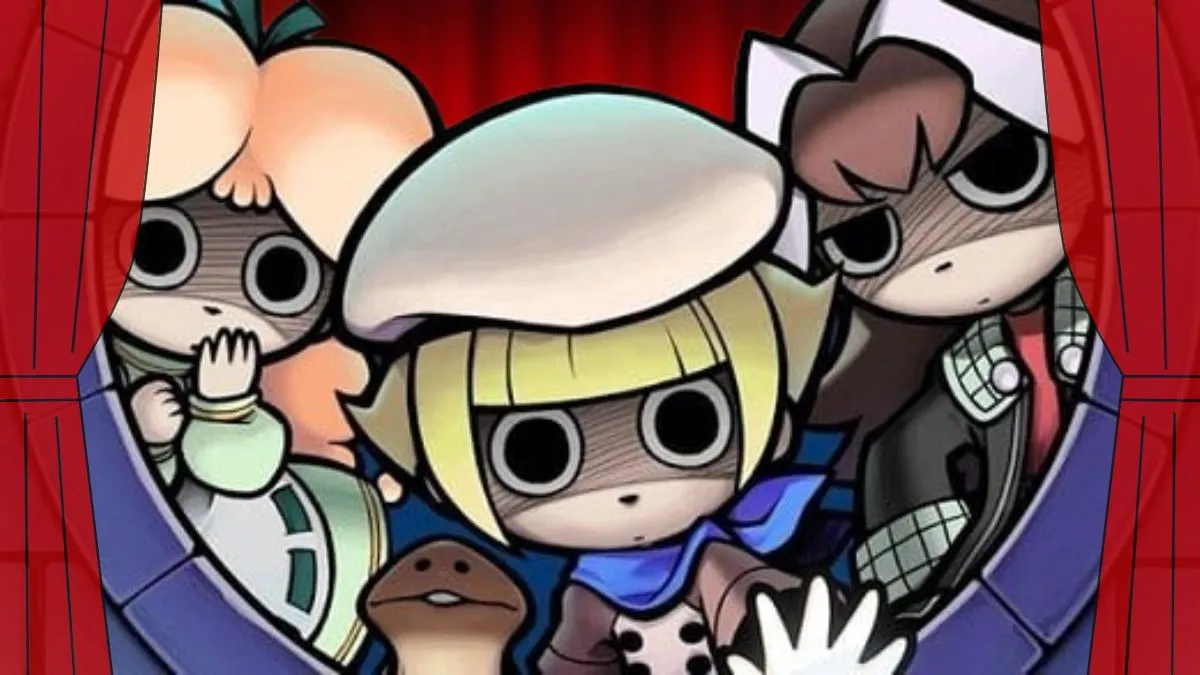This article contains spoilers for Metal Gear Solid 4: Guns of the Patriots.
With the beginning of 2021 absent of major new game releases, I decided to replay the entirety of Hideo Kojima’s Metal Gear Solid series. This included Metal Gear Solid 1–4, Peace Walker, Ground Zeroes, and finally The Phantom Pain. The series of recursive and self-reflective tactical espionage action games is one of my favorite franchises, but I had never experienced it all in such a condensed period of time. I was genuinely curious to see what new revelations I might excavate by viewing the stories and gameplay as a singular, fast-paced whole.
My revisiting of the franchise cemented certain thoughts I’ve had for quite some time: The original Metal Gear Solid on PlayStation 1 remains one of the most influential games of the 3D era. Metal Gear Solid 3: Snake Eater is probably the most efficient melding of story and gameplay in the entire series; plus, its battle with The End remains one of the best boss encounters of all time.
But apart from these affirmations, I gained a new appreciation for elements of the franchise I didn’t fully understand or appreciate the first time around. Once you maneuver past the bait-and-switch shellshock of playing as Raiden for a bulk of Metal Gear Solid 2: Sons of the Patriots, what you’re left with is an eerily prescient statement on how disinformation, data accumulation, and the rise of memes as a method of information transfer are placing society in a precarious position. Between this and Death Stranding 2020 foresight, it genuinely feels like Hideo Kojima might be in possession of a crystal ball.
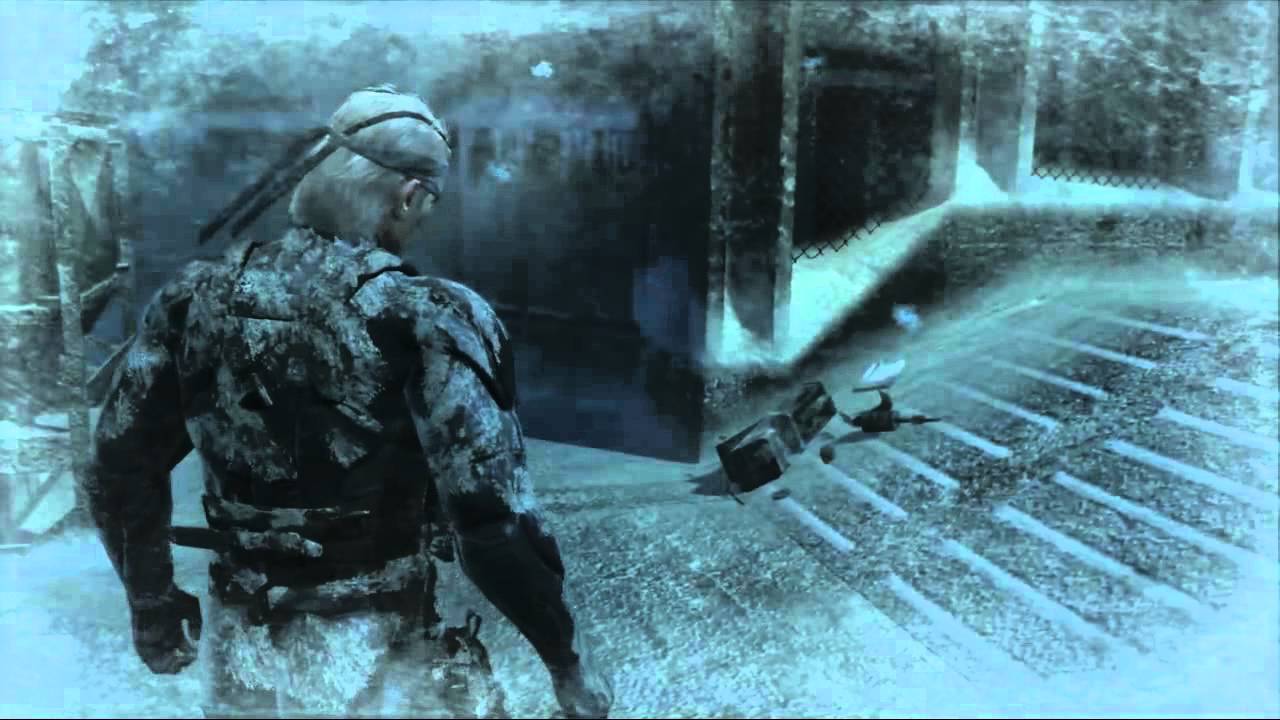
But the other game I gained a newfound respect for was 2008’s Metal Gear Solid 4: Guns of the Patriots. To be clear, it still remains a big, messy, and strange PlayStation 3 game that is simultaneously a fitting conclusion to Solid Snake’s arc, a victory lap for the series (which, it turns out, still had the better part of a decade of games left), and one of the most self-indulgent experiences of its generation. That said, the fourth act of the game, titled “Twin Suns,” is an absolute knockout and a powerful embodiment of how you can never truly go home again.
As an aging and dying Solid Snake, aptly dubbed Old Snake, you make your way back to Shadow Moses, the Alaskan island and military base that served as the setting of the original Metal Gear Solid. On paper, this is the mission that every long-time fan has been dreaming of. Being able to see that iconic setting again, fully realized using the power of the PS3 hardware, was a dream come true. If Guns of the Patriots was all about closing the loop on Solid Snake’s story, then it makes perfect sense to relive his most iconic adventure.
As the chapter begins, you’re suddenly transported back to 1998 and replaying the opening infiltration exactly how it was on the original PlayStation. The camera might be limited and the art impressionistic, but the powerful wave of nostalgia catches you off guard. Even if I hadn’t just played through the game a few weeks ago, the muscle memory of the dozens of times I went through this area would’ve naturally kicked in.
But after you avoid the guards and sneak into the base, the camera zooms in on Snake’s polygonal face. Old Snake suddenly awakes with a start, back on the helicopter en route to Shadow Moses. When your trusty sidekick Otacon asks what’s wrong, Snake distantly replies, “I was having that dream again.” This is the first clue that we’re about to experience something different and special.
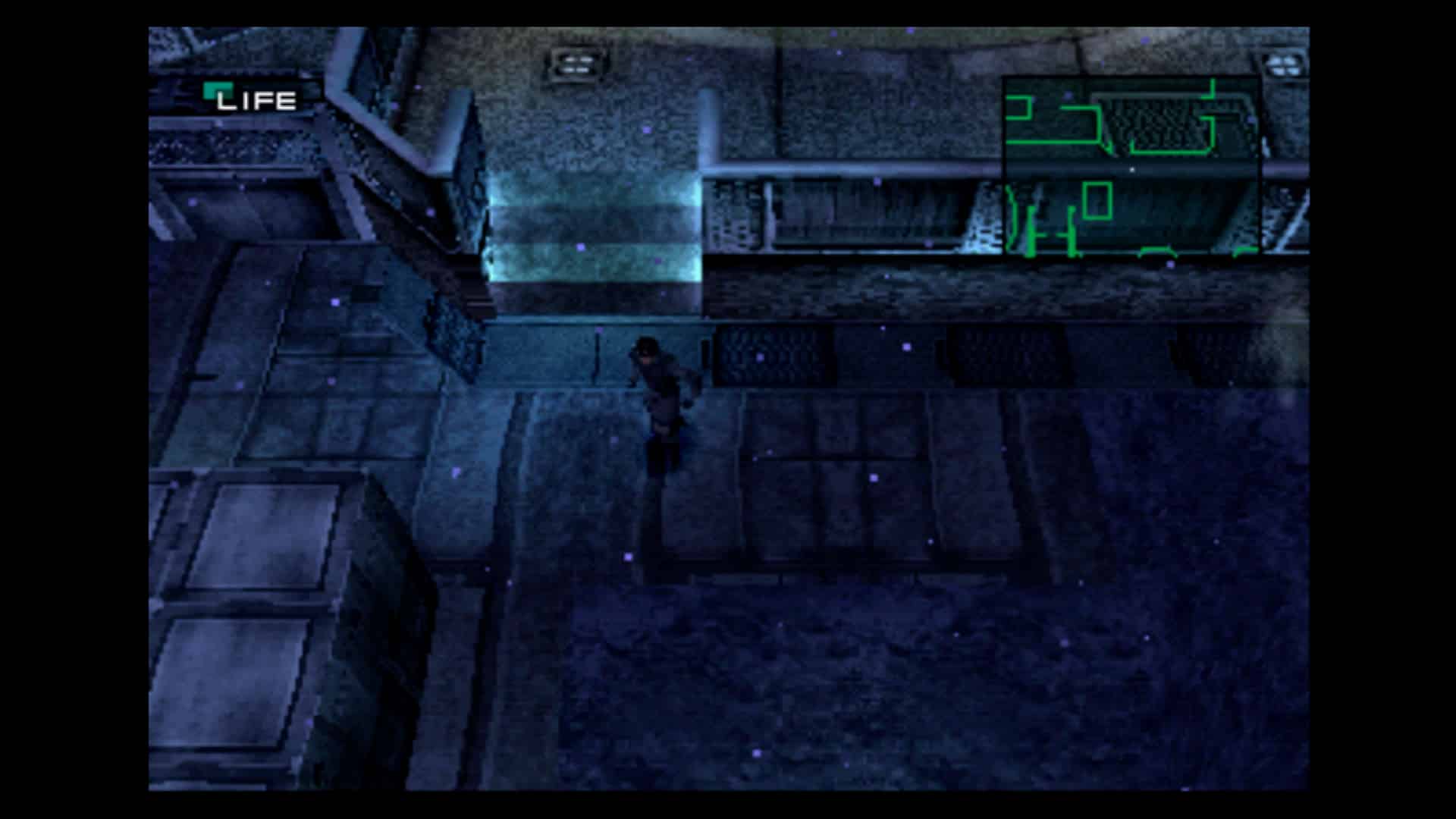
The Shadow Moses we remember from 1998 is no more. The road to the base is blanketed by a raging blizzard, but once you finally make your way to the familiar facade, it’s clear that what was once a fearsome military installation is now a decrepit shell of its former self. A rising ocean has pulled much of the archipelago back into the sea. The dangerous security cameras are all rusted and falling off the walls. The hallways, once teeming with guards and life and danger, are now silent and still. Nooks and crannies that once hid powerful weapons and futuristic gadgets are now buried in rubble. The times have moved past Shadow Moses. The technology that once adorned the complex is now obsolete. Like Old Snake himself, they simply have no place in this new world.
The entire mission feels like a microcosm for one of Metal Gear Solid 4’s core themes. It feels like Hideo Kojima is answering the massive fan demands for this Metal Gear sequel by giving them a game about making them careful what they wish for. Snake isn’t the stealthy superhero of MGS1, but an old man with a smoker’s hack, a bum back, and a growing addiction to his nanomachine suppressant injections. Revisiting Shadow Moses doesn’t bring back the excitement of our glory days, but instead highlights the irrefutable truth that, eventually, everything dies.
Of course, the entire act culminates with Kojima subverting his own subversion. The final showdown of the chapter sees Snake climb aboard the original Metal Gear Rex to face off against Liquid Ocelot in his Metal Gear Ray. The battle unfolds as a mecha street fight that gives the player one final and wildly entertaining adrenaline rush that’s so absurd that it’s hard not to laugh. I almost expected this sequence to end with Old Snake waking up, staring off into the distance, and mournfully murmuring, “I was having that dream again.”
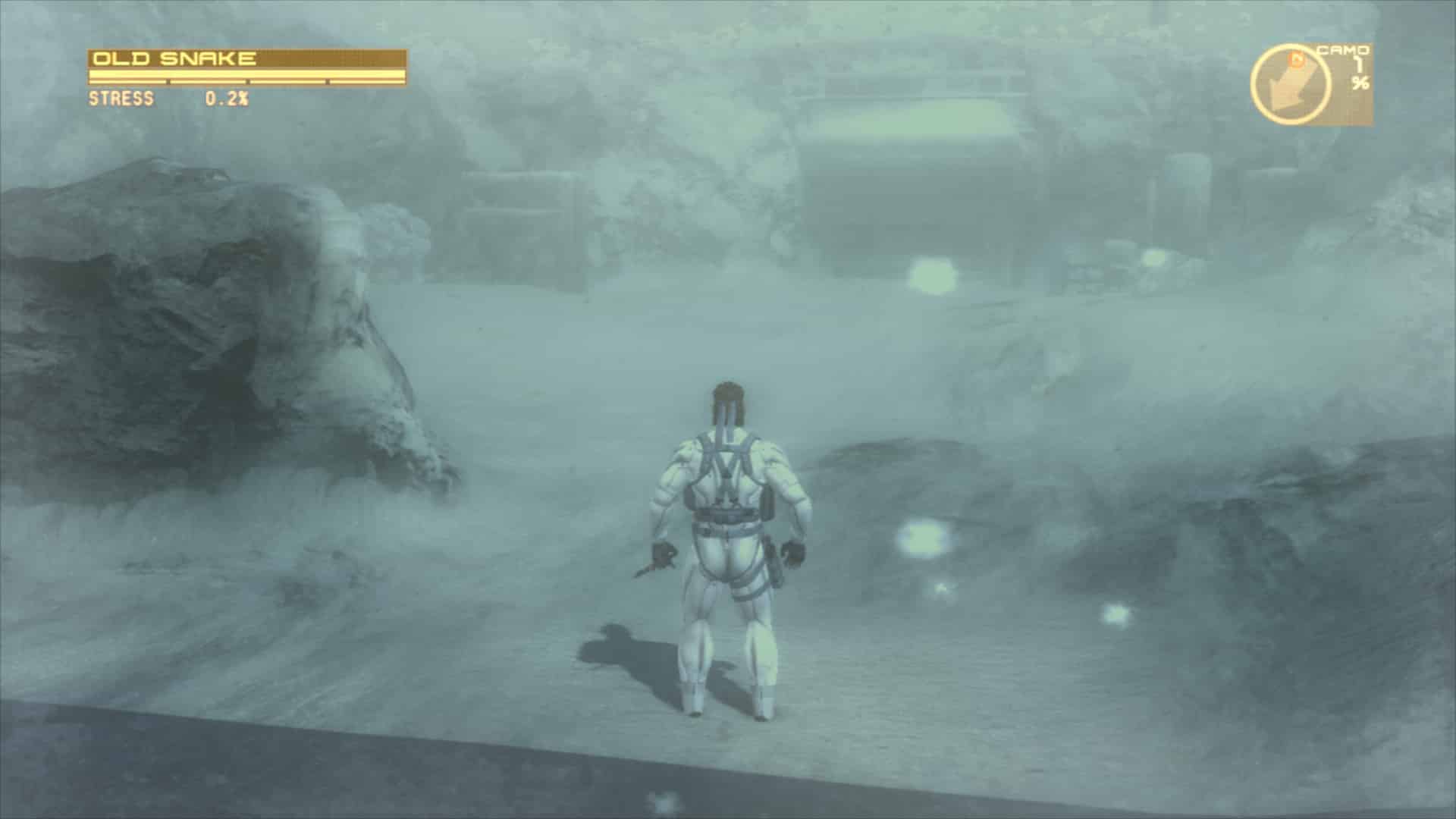
Metal Gear Solid 4 certainly isn’t the only game that revisits its own past, but most other games do so more optimistically. Astro’s Playroom and Super Smash Bros. Ultimate are ostensibly living museums of their respective histories. And The Legend of Zelda: Breath of the Wild is filled with small details that intrepid explorers can stumble upon, like the familiar architecture of Ocarina of Time’s Lon Lon Ranch, albeit now in ruins thanks to Calamity Ganon’s malice.
Perhaps the most striking recent example of this, and one that acts in counterargument to Kojima’s stance on the past, is Final Fantasy VII Remake. Shortly after its release, I wrote about how the game felt like Square Enix discovering how to weaponize nostalgia. Everything from the iconic music, to the old characters, to the familiar settings all brought back waves of emotions from the same era as the original Metal Gear Solid. But instead of showing us the inevitable ravages of time, it lays out a recreation that seems to be pulled from the deep wells of our memories. For Cloud and company, it turns out you really could go home again.
But not for Old Snake. Like the Shadow Moses archipelago slowly being taken over by the rising waters, the march of progress is wiping him off the known map. His legend will remain as long as there are those who live to pass on his story, but even those people will eventually dwindle in numbers. If Final Fantasy VII Remake is an inherently optimistic work of nostalgic restoration, Metal Gear Solid 4’s trip back to Shadow Moses shows us that, sometimes, it’s better to leave the past as it is.

